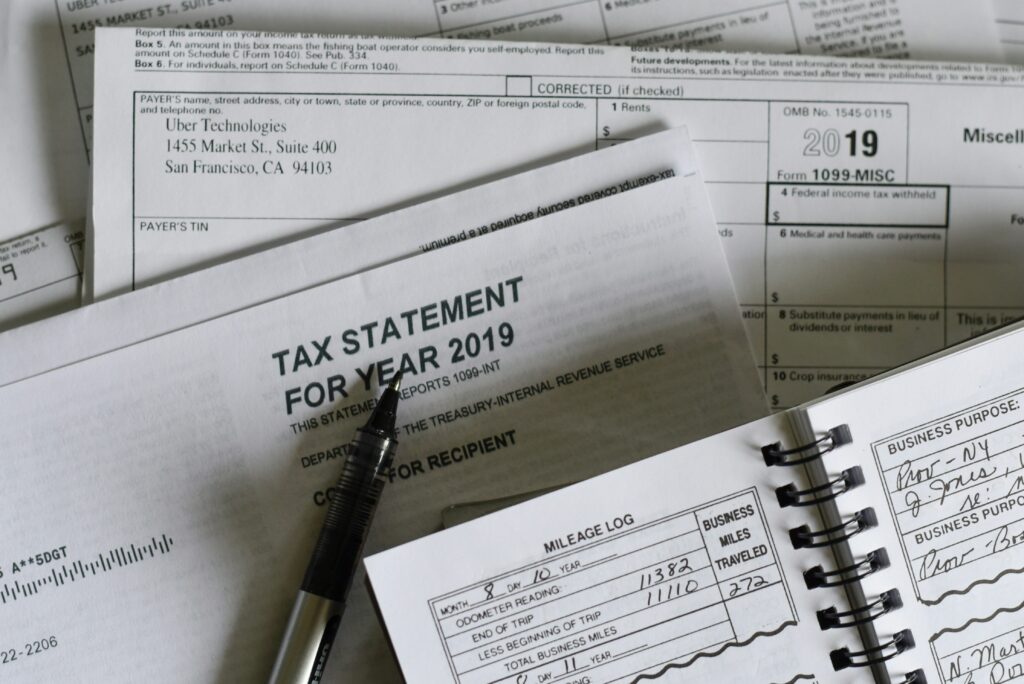A business-friendly tax policy is in place in the Republic of Lithuania, and the tax code has been modified to comply with EU law. The Supreme Council issues orders for the collection of taxes and other contributions to the budget. Nevertheless, regional and local councils take independent actions concerning tax collection. The Law on Tax Administration governs the fundamentals of tax payment and their control in Lithuania.

Corporate income tax
A corporate income tariff is imposed on both for-profit businesses and nonprofit organizations that participate in commercial activity. A reduced company tax rate of 5% is available to small enterprises with fewer than 10 workers and yearly revenues under EUR 300,000. The ordinary corporation tariff rate is 15%. Additionally, companies in the agricultural industry, nonprofits, small businesses, companies with foreign interests, and companies that employ people with disabilities may apply for tax breaks.
Personal income tax
Regardless of employment status, a 15% personal income tax applies. Permanent residents’ tax is calculated based on both domestic and foreign earnings. Only the income earned in Lithuania by foreign residents is taxable. To be a resident, one should spend no less than 183 days in Lithuania in 12 months. Those procuring beneath the non-taxable income threshold are excluded from individual income tariffs. STANDARD NON-TAXABLE INCOME AMOUNT – 0.15 * (WAGE – minimal WAGE) is the formula for determining the minimal non-taxable income. The current minimum salary is EUR 555 and the normal non-taxable income amount is EUR 300. The personal income tariff is not taken from pensions or scholarships, and handicapped people and single mothers (fathers) are also exempt.
Property tax
In Lithuania, the property charge rate is somewhere in the range of 0.3% and 3%. Private property is subject to a 1% charge on any increase in value past EUR 220,000. For families with three or more minor children or a child who needs special care due to a disability, the barrier is raised to EUR 286,000. Additionally, it should be emphasized that the local municipality in each instance regulates the actual real estate tariff rate, which should still fall within the previously indicated range.
Land tax
The land tax in Lithuania encompasses only taxes related to land. Municipal and district governments establish the rules for calculating and paying this tariff. The tariff applies to exclusive land, with a yearly rate going from 0.01% to 4% of the land’s worth. If that property is gained in the first half of the year, new owners should pay the duty for the year long. For land procured in the last part of the year, the tax payment starts the next year. If the land is sold during the principal half of the year, no expense is owed for that year. If it happens during the second half of the year, the tariff is due for the whole year.
Tax on inheritance
Applying the accompanying tariff rates, the amount of tariff is determined by the worth of the acquired property. Assuming that the acquired property’s worth is less or equivalent to EUR 150,000, the tax rate is 5%. If it exceeds EUR 150,000, the tax rate is 10%. Property inherited by the following people is exempt from taxation;
- A surviving spouse after the death of the other spouse.)
- Children (including adopted children).
- Parents (including adoptive parents).
- Guardians.
- People under guardianship (children taken into care)
- Grandparents
- Grandchildren
- Siblings.
- Property whose taxable value is less than EUR 3,000.
VAT
Lithuania has a 21% VAT rate. Foreign organizations in Lithuania must register as VAT payers if they:
- begin the VAT-taxable business operations in Lithuania;
- buy goods in Lithuania from EU entities, and the yearly total surpasses EUR 14,000;
- purchase services from foreign-based taxable companies;
- conduct remote sales and the total value of goods delivered to Lithuania exceeds EUR 45,000.
Except for long-term investments, individuals earning income from selling essential commodities and vital services (e.g., food, and postal services) are exempt from VAT calculation and payment to the budget.
Social insurance payments
The coordination of social insurance programs is rather well-developed in Lithuania. Employers and workers jointly contribute to social insurance. The basic contributions total 33.7% of the gross income before taxes and cover all risks (apart from occupational illnesses and workplace accidents). Of this amount, 30.7% is paid by the employer and the remaining 3% by the employee. On behalf of certain groups of people, such as children, the state provides contributions (participates in funding).
You may also find these articles helpful
Working in Lithuania as an expat
